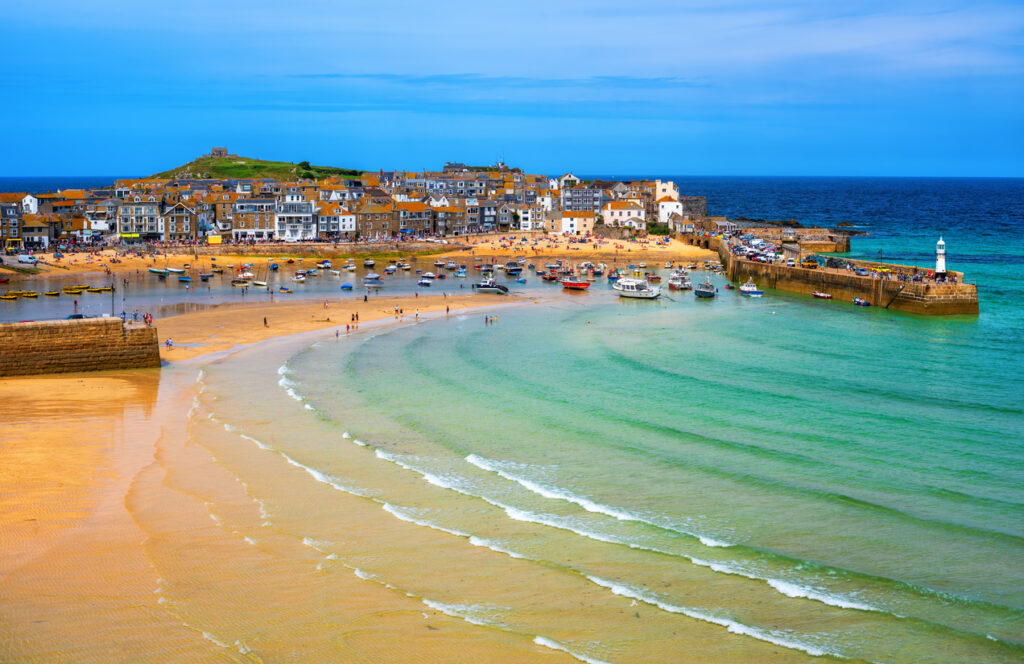Cornwall council warns of potential tourism tax
In a bid to harness the economic potential of Cornwall’s thriving tourism industry, the region’s tourism chief has raised the prospect of implementing a tourist tax in the near future.
With over four million holidaymakers and an additional 12 million day visitors annually, Cornwall is one of the UK’s premier tourist destinations.
Support for a “Cornish Tourism Tax”
Malcolm Bell, the CEO of Visit Cornwall, has thrown his weight behind the idea of a “Cornish tax” to capitalize on the influx of visitors.
He emphasizes the need for a cautious approach, advocating for informed debate and careful consideration of options.

Learning from Venice’s Example
Bell draws attention to Venice’s introduction of a tourist levy as a precedent, aiming to strike a balance between tourism and local needs.
However, he highlights the importance of ensuring that the tax revenue directly benefits local businesses and communities.
Coordinated Approach with Devon
To prevent the displacement of tourists, Bell suggests coordinating with neighbouring Devon – he stresses the importance of distributing tax revenue back into the local economy.

Enhancing Cornwall’s Appeal
Bell believes that tourists would be amenable to paying the tax if they see tangible benefits flowing back into Cornwall’s economy.
He underscores the importance of maintaining Cornwall’s natural beauty and wildlife, emphasizing the need for sustainable tourism practices.
Council’s Inquiry and Proposals
In response to these discussions, Cornwall Council has launched an inquiry aimed at maximizing the year-round benefits of tourism while supporting local communities.
Proposals include staggering school holidays and implementing a registration scheme for short-term rentals, with the tourist tax option being taken seriously by councillors like Mike Thomas.

Pros of Implementing a Cornwall Tourism Tax:
- Revenue Generation: A tourism tax could provide a significant source of revenue for Cornwall, helping to fund infrastructure projects, preserve natural landscapes and support local businesses.
- Fair Contribution: Tourists often utilize public services and infrastructure, such as roads, public transportation, and waste management without directly contributing to their upkeep through local taxes. A tourism tax would ensure that visitors contribute to the costs associated with their stay.
- Resource Management: Cornwall attracts millions of visitors each year, putting strain on its resources and environment. A tourism tax could be used to implement sustainable tourism practices, mitigate environmental impacts and manage visitor numbers more effectively.
- Local Economic Support: Revenue from a tourism tax could be reinvested into the local economy, benefiting businesses, residents and communities. This could include funding for tourism promotion, cultural events, and heritage preservation initiatives.
- Destination Management: By generating additional funds, Cornwall would have greater resources to manage its tourism industry effectively. This could involve improving visitor experiences, enhancing safety measures and addressing issues such as overcrowding in popular tourist destinations.

Cons of Implementing a Cornwall Tourism Tax:
- Impact on Affordability: Introducing a tourism tax may make visiting Cornwall more expensive for tourists, potentially deterring budget-conscious travellers and impacting tourism numbers.
- Competitive Disadvantage: Cornwall competes with other tourist destinations both nationally and internationally. Implementing a tourism tax could make Cornwall less competitive compared to destinations without such levies, leading to a decline in visitor numbers.
- Administrative Burden: Managing and enforcing a tourism tax system would require administrative resources and infrastructure. This could impose additional costs and bureaucracy on businesses, local authorities, and tourism operators.
- Visitor Perception: Some tourists may perceive a tourism tax as an unwelcome additional expense, leading to negative perceptions of Cornwall as a tourist destination. This could impact visitor satisfaction and deter repeat visits.
- Potential Backlash: Introducing a tourism tax may face opposition from tourism industry stakeholders, including businesses, tour operators and accommodation providers. There could be concerns about the impact on competitiveness, profitability
- ] and visitor demand.
What do you think? Could this be a reality? Would you support it? Feel free to let us know in my Facebook group!






